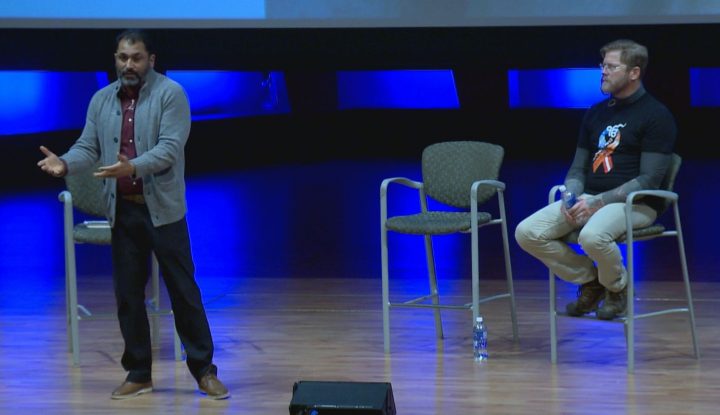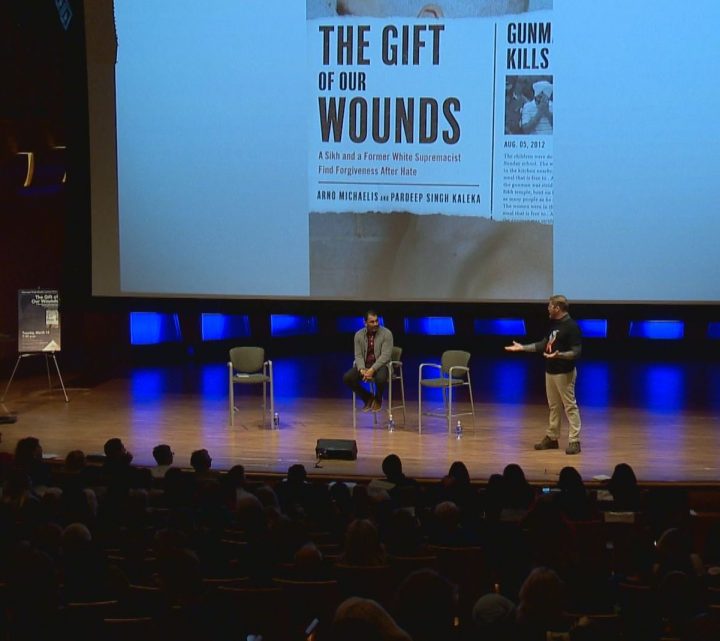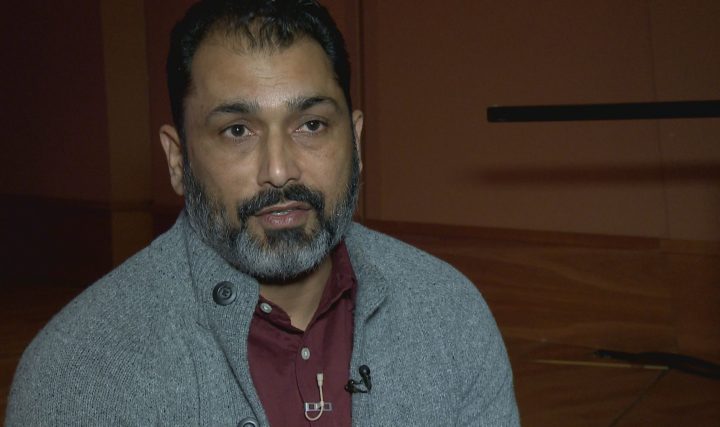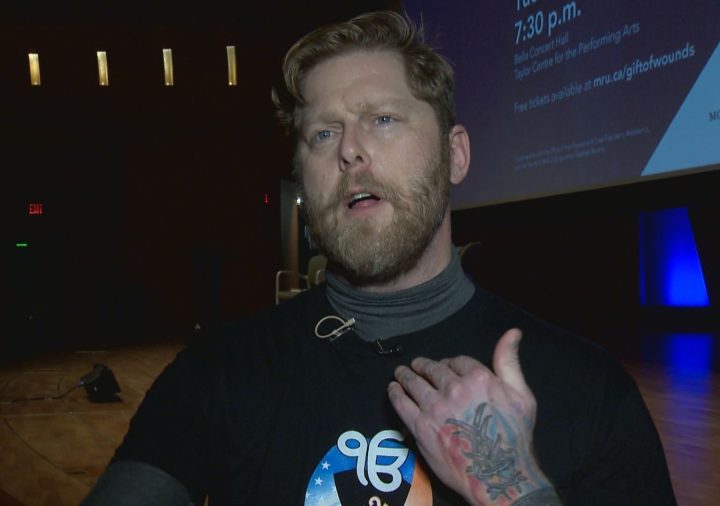You’d never think “Sikh,” “white supremacist” and “friends” would be words used together in a sentence.

Two men from opposite worlds demonstrated that people can overcome differences — and even become friends — at an event at Calgary’s Mount Royal University (MRU) on Tuesday night.
A brutal attack entwined their lives.
On Aug. 5, 2012, a white supremacist fatally shot six people inside a Sikh temple in Oak Creek, Wis.
Arno Michaelis was a founder of the white supremacist group to which the shooter, Wade Michael Page, belonged. Michaelis had denounced his former affiliation in 1994.
Pardeep Singh Kaleka was the son of Satwant Singh Kaleka, the temple leader and a casualty of the shooting.
LISTEN: Arno Michaelis and Pardeep Singh Kaleka join Calgary Today to discuss healing wounds of racism
After the tragedy, Kaleka reached out to Michaelis to try to comprehend the reason behind the attack.

Get breaking National news
“When we first met, he helped me understand the why and what we can do about it going forward,” Kaleka said. “Our relationship, our friendship has been instrumental not only in our communities healing, but [in] my individual healing.”
The pair worked together and founded Serve2Unite, an international peacebuilding and educational initiative.
On Tuesday, the men spoke about their journey through empathy at the Manmeet Bhullar Speaker Series inside MRU’s Bella Concert Hall. They received the Arts Distinguished Speaker Award, which recognizes advocacy work in social sciences.
In collaboration with author Robin Gaby Fisher, the two wrote a book called The Gift of Our Wounds: A Sikh and a Former White Supremacist find Forgiveness after Hate, which was published in April 2018.
Kaleka said people need to have face-to-face conversations to be able to grow stronger together.
“I think divisive times that exist right now have been here for a long time — it’s just we’re plugging into some of that and really in tune because of social media,” he said.
“A lot of the angst and fear that exists, exists within us and within our groups. We need to address it.”
Michaelis agreed that polarization in the current political climate stems from deep-seated fear.
“I think what we need to do is create some room for uncertainty,” he said. “In that space for uncertainty, we can have space to listen to people that we might not agree with — the beginnings of a path to find common ground.”
To find similarities, Michaelis said people need to bring that conversation to a personal level and make it about human values — compassion, kindness and forgiveness — regardless of ethnic, political and socioeconomic backgrounds.
“Instead of discussing macro, geopolitical things, let’s talk about me and you and the experiences that we’ve had firsthand, and how that informs our opinions,” he said.
“It’s possible to not only heal and work through trauma but to reach a place where you can help others heal as well.”





Comments